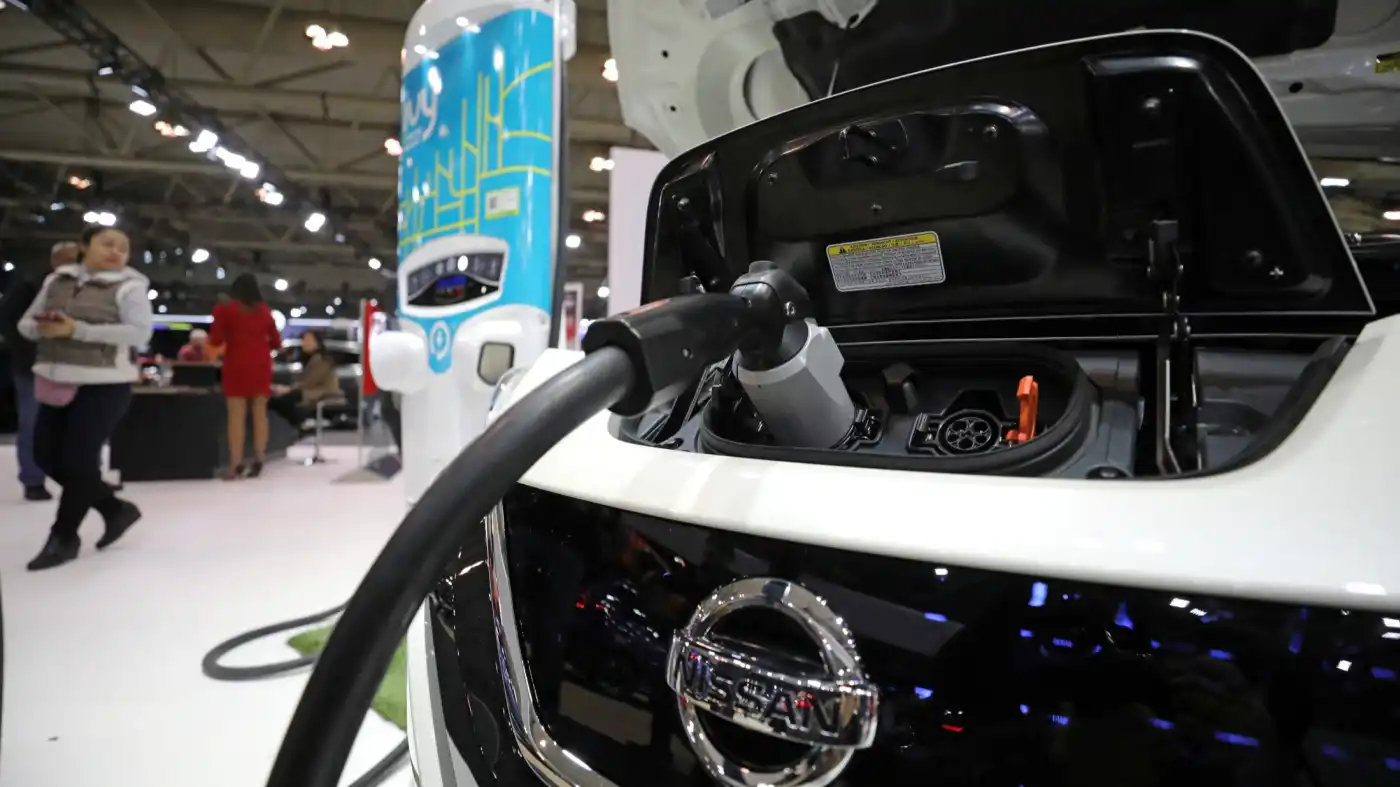Global initiative aims to reverse sharp depreciation of used electric vehicles

TOKYO — Nissan Motor’s iconic Leaf electric vehicle often fetches well below $5,000 on the used car market, no matter its mileage.
“With the current state of battery performance, any EV becomes essentially worthless after a decade of use, unless it’s a high-end model,” said a securities analyst. The Leaf has been on the market since 2010.
An EV’s value is largely defined by its battery, which accounts for 30% of the vehicle’s cost. Without a widely shared process for appraising a used battery, EVs have suffered from limited resale values.
A new pricing standard for used batteries, announced Tuesday by the Mobility Open Blockchain Initiative, aims to be a gamechanger in this regard. For electric autos to become commonplace, an active second-hand market will be imperative, along with charging stations.
MOBI’s battery pricing standard is informed by blockchain data that records the original EV’s age and mileage, as well as changes in battery temperature. Based on those factors, the battery’s condition will be given a numerical value that will be useful for pricing.
MOBI is a collective of over 100 members ranging from automakers like Ford Motor to the European Commission. The standard is expected to become commercially available next year.
“With Europe being ahead in creating regulations for batteries, an alliance spanning countries and corporations have finally made a move,” said Hiroto Suzuki, managing partner at consultancy Arthur D. Little Japan.
Batteries can be reused in different electric vehicles, or repurposed for storing power for residences. Although a battery’s performance declines with each recharge, there had been no common standard to guide second-hand purchases.
“I can only determine a battery’s depreciation through approximations,” said a manager at a Tokyo used-car dealership. “As of now, I can’t give an accurate valuation of used EVs.”
“For a consumer who will own an EV, the depreciation of the vehicle’s battery is one of the first things they would want to know,” said Seiji Sugiura at Tokai Tokyo Research Institute. “If such a standard of valuation quickly becomes widespread, [the owner] can clarify the EV’s asset value, which will encourage replacement purchases.”
In the Japanese market, used-car sales accounted for nearly 60% of all passenger vehicle sales last year, according to the Japan Automobile Dealers Association. But used electric cars are still circulated in limited volumes, and replacements between EVs have not made progress.
Of the roughly 490,000 used cars listed Tuesday on a search platform managed by Proto, which operates Japan’s largest used-car information site, only about 1,500 EVs were included in the count.
Source : Nikkei Asia

